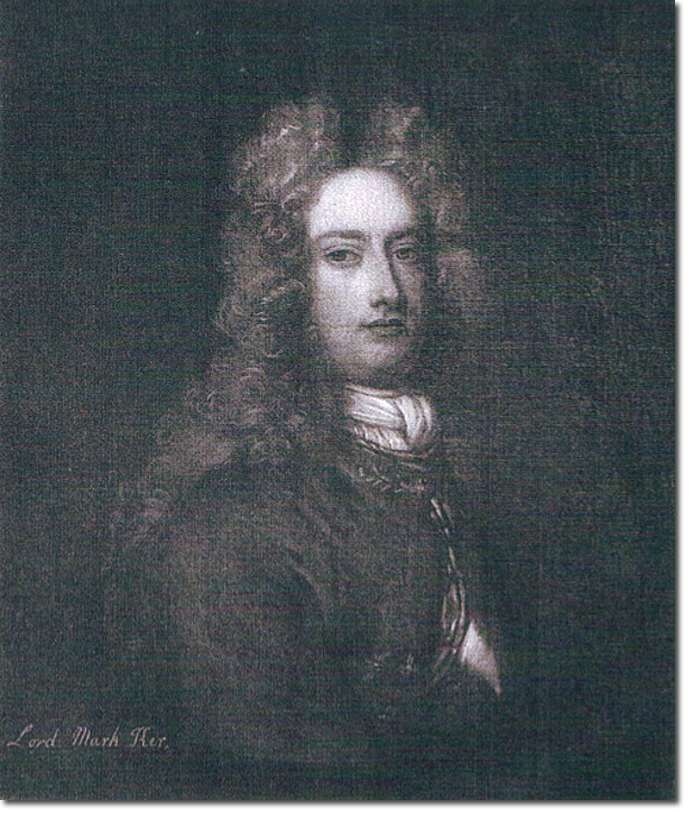|
|
 P>
P>

|
|
Mark Kerr was the 4th son of Robert the 4th Earl and First Marquis of Lothian. His first military service was in Flanders under King William III. He was a quiet, seemingly mild-mannered young man but there was a story about him that showed otherwise. One evening, at a large party somewhere in a camp in the Netherlands, a foreign officer insulted him in a very offensive way. Mark Kerr appeared to take no notice and the party carried on until the crowd dispersed and he was left with a few friends. He was reminded of the incident and was urged to call the man out for a duel. He replied in his quiet way that, 'It is too late for that, they are burying him outside now.' He had in fact slipped out unnoticed, fought the duel, killed the man and come back to the party.
His bravery was beyond question. At Almanza he commanded a regiment which was positioned between two regiments of Portuguese cavalry. They quitted the field at the first attack leaving Kerr's regiment to be outnumbered and cut to pieces. Kerr was wounded in the arm, his lieut-colonel and major were killed and his unit lost 23 officers, killed, wounded or captured. When he was Governor of Edinburgh Castle, the Second Jacobite Rebellion broke out. On 21 Sep 1745 the army was defeated at Prestonpans, and some of the dragoons who had fled from the field came to Edinburgh Castle. Kerr refused to admit them into the castle and threatened to fire on them as cowards who had deserted their Colours. They afterwards sought shelter at Berwick. Lord Kerr, on meeting Sir John Cope, who had commanded at Prestonpans, is quoted a saying that Sir John was, 'the first general who had ever brought the news of his own defeat.' This seems to imply, unfairly, that Cope was expected to die on the field of battle, like a captain going down with his ship. He was a man of marked and decided character with strict notions of honour and good breeding. He was a stickler for etiquette but his idea of manners was derived from foreign courts which caused puzzlement, however no-one 'dared to laugh at his singularities'. He was a great dandy and fond of duelling, although not quarrelsome.
1694 Captain of a company of infantry |
Armed Forces | Art and Culture | Articles | Biographies | Colonies | Discussion | Glossary | Home | Library | Links | Map Room | Sources and Media | Science and Technology | Search | Student Zone | Timelines | TV & Film | Wargames
